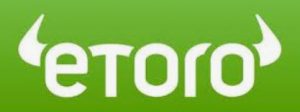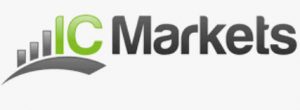TOC:
A Contract for Difference (CFD) is a an over-the-counter (OTC) derivative instrument. With CFDs, you can speculate on a wide range of assets without actually buying, owing and selling them.
Profits are made by correctly predicting price movements, counted from when you enter the trade to when the position is closed.
Brokers that offer CFD trading will also frequently offer leverage or margin trading to their clients. This essentially mean that you borrow money from the broker to carry out a purchase.
Different brokers offer different underlying assets
CFDs can be used to speculate on a wide range of assets and products. The exact assortment will depend on which broker you are using, so it is important to select a CFD broker that offers the asset types and specific assets that you need for your trading strategy. In some cases, you might find it suitable to sign up with more than one broker to make sure you get access to the right underlying assets for speculation.
Examples of popular asset types and product types:
– Stocks (typically exchange-traded stocks)
– Stock indices
– Options contracts
– Futures contracts
– Forex (foreign currency pairs)
– Cryptocurrency
– Commodities (agricultural commodities, metals, energy commodities, etc)
– Exchange-traded funds (ETFs)
Get access to a trading platform that suits your preferences
Which CFD broker you pick will determine which platform or platforms you get access to. Which platform you use can have a huge impact on your overall trading experience and profitability, so this is an important aspect when comparing brokers.
Of course, the platform needs to work well and not be riddled with bugs, have a tendency to freeze, etcetera. But it also needs to suit your particular needs and preferences, e.g. when it comes to the interface. In the high-paced world of CFD trading, you do not want to use a platform where you lose valuable seconds or make order mistakes because the interface does not suit you.
Proprietary or third-party
Many CFD brokers have developed their own proprietary trading platforms that are specific to them and only used by their clients.
Some CFD brokers will instead give you access to a third-party platform used by many different brokers.
The are also brokers who will give you access to both worlds; their own proprietary platform and one or more third-party platforms.
Examples of well-known and very popular third-party trading platforms are MetaTrader 4 (MT4), MetaTrader 5 (MT5) and cTrader. None of them are for CFD trading only; they are utilized for a wide range of instruments. All three come with a lot of extra features and very big toolboxes for technical analysis. They are truly great trading platforms, but the amount of advanced features can feel a bit overwhelming at first for a novice trader.
Download or install?
You can either download and install a trading platform on your computer, or you can open it directly in the browser window.
The above-mentioned MT4, MT5 and cTrader are available for both download and for trading directly in the browser window.
A proprietary trading platform is more likely to be designed for browser trading only. If downloading and installing is important to you, make sure you double check in advance. Some proprietary platforms can be downloaded an installed, but it is not very common any more.
Trading on mobile devices
If your plan is to trade on your smartphone or tablet, make sure you pick a broker where the platform is suitable for this. Typically, you will get a better trading experience if the platform has a dedicated mobile app for you to download and install instead of simply asking you to access the platform in the browser window of your device.
A trading app designed for iOS will not work on an Android phone and vice versa, so double-check that the correct app for your device is available.
MT4, MT5 and cTrader all have mobile apps for both iOS and Android.
Technical analysis
If you are interested in technical analysis, you might want to make sure you get a platform that comes with good tools for this. There are many benefits to having the tools integrated into the platform, e.g. the ability to place orders directly from the charting area.
Account levels
Some brokers that offer access to several different platforms will not do this for all account types. You might for instance only get access to a basic proprietary platform if you have a Nano/Micro trading account, while the more advanced third-party platforms are reserved for traders at higher account levels. If you have your eyes set on a particular platform, make sure you know the access rules before you sign up with the broker.
Test-run the platform(s) using a free Demo Account
Serious CFD brokers will typically welcome you to sign-up for a free demo account and they will also fill it with free play-money for you. This way, you can test out the platform or platforms without risking any real money. Actually being able to carry out trades (using play-money) will give you a better idea of what the platform is like than demo accounts where you are only allowed to browse around.
Make sure the broker offers an account type that is suitable for your trading strategy
Some CFD brokers give the same standard account to all their clients, while others have different account types available for different bankrolls and trading styles. Both of these solutions can work well, but it is important that you check in advance that the broke you are interested in using offers something – either a standard account or a specific account – that is suitable for your trading plans.
– Many new CFD traders wants to start out with small deposits and gradually build their account balance, rather than make a big first deposit. Does this broker accept deposits that are small enough for you to be comfortable with?
– If your trading strategy is based on small trades, make sure that small trades are not just possible with this broker, but that the fee structure for it is suitable. If you want to make many small trades, do not sign up for a broker or account where you pay a comparatively big fixed fee on each trade because that will quickly erode your bankroll.
Different account types for different traders and trading strategies
As mentioned above, some CFD brokers offer different account types. A very common solution is to offer different accounts based on the size of your first deposit.
Below, we will take a look at an example of what it can look like when signing up with a broker. Please note that it is just an example. Each broker set their own rules for their account types (within the legal parameters), so you always need to check with the specific broker you are interested in. The examples below are only intended to give you an idea of how it can work.
Example:
Micro Account
This account has a low minimum deposit and is typically tailored with small-scale novice hobby traders in mind. There are CFD brokers available were you can get a basic account by depositing just $10. Sometimes, not all features of the broker and platform are available with this account type, since it is intended for beginners. You might for instance not get access to certain CFDs, not get access to certain advanced tools for technical analysis, and so on. To get access to more, you need to level up from the Micro Account – typically by making a larger deposit or by building up your account balance and/or monthly trading volume to a certain threshold.
Mini Account
This account type is similar to the bottom-level account, but the minimum deposit is higher, e.g. $100 or $500 – depending on which broker you have selected. It typically comes with more features and is popular among traders who already have CFD trading experience and are trying out a new broker. They want a somewhat substantial bankroll to start with since their trading strategy requires it, but they do not want to make a really big deposit to a broker they have not used before. The intermediate account offers a good compromise.
Standard Account
The Standard Account typically comes with all the bells and whistles, except those specifically reserved for VIP traders. It is common to be offered larger leverage with a Standard Account than any of the lower accounts, and you will also get access to the full offering of trading advice, news, tools for technical analysis, etcetera. It is not unusual for CFD brokers to require a deposit of at least $1,000 to give you a Standard Account.
VIP Account
With some brokers there is just one VIP Account, while others have several top-tier accounts. They tend to require either a very big deposit or a very high account balance and/or monthly trading volume. You get everything from the Standard Account, plus access to special VIP feature. It is common for brokers to give their VIP traders a personal account manager, access to VIP support, individual trading advice, and similar personalization perks intended to make your trading experience more pleasant. You may also get access to extra beneficial CFDs, higher leverage, monthly cashbacks, etcetera that can impact your bottom line.
Market Makers vs. Direct Market Access (DMA) brokers
Most CFD brokers can be placed in one of two categories: Market Maker brokers and brokers who will give you Direct Market Access (DMA).
When your broker is also a market maker (MM), the broker will purchase significant positions from liquidity providers. The MM broker will match buy orders with sell orders, but can cover liquidity deficits themselves and will therefore typically not require a large deposit from the client.
A Direct Market Access (DMA) broker will send buy and sell orders on straight to a third-party liquidity provider. The most common method today is to use an Electronic Communication Network (ECN) and those DMA brokers are known as ECN brokers. You place your order and it goes directly to the Electronic Communication Network. DMA brokers do not cover liquidity gaps and will normally require a larger deposit from their client compared to MM brokers.
How do CFD brokers make money?
When comparing different CFD brokers it can help to understand how they make (the bulk of) their money. How they earn a profit from their traders will impact many business decisions for the broker, which in turn can impact your profitability since it will effect the cost of employing your trading strategy with this particular broker.
Commissions
A commission is a fee charged to facilitate a trade. Commissions can be fixed or depend on the size of the position.
Spreads
The spread is the difference between the quoted buy and sell prices and the real market prices. It is very common for CFD brokers to make money from the spreads instead of charging commissions.
Being the counterpart of a trade
A broker can be your counterpart in a trade. They will then lose money when you make a profit, and make a profit when you lose money.
There is always a risk of this muddling the waters, since the broker is no longer an independent match-maker betweens buyers and sellers of financial instruments. Still, many traders are okay with it, partly because it can reduce latency.
Lending money
CFD brokers who offer leverage, margin trading or similar are essentially money lenders, as they will lend you money to complete a trade. Just like a bank, they charge you for borrowing money from them.
Beware that borrowing money to keep positions open over night can incur extra fees. In the world of leveraged CFD trading, many traders make sure to close all positions before the end of each trading day.
Hedging
A CFD broker can make money through hedging.
Miscellaneous fees
Miscellaneous fees will typically not make up the bulk of a CFD brokers profits, but they can still erode your bankroll so you need to keep an eye on them when comparing brokers.
Examples of miscellaneous fees:
– A fee charged to process deposits into your account
– A fee charged to process withdrawals from your account
– Inactivity fee
– Platform fee
Payment methods
• Pick a CFD broker where you can make deposits and withdrawals using a method you are comfortable with using and that doesn´t cost a lot for you to use.
• Check in advance if the CFD broker will charge you deposit and/or withdrawal fees.
• Check the minimum and maximum limits for deposits and withdrawals, to make sure they are suitable for your needs.
• Today, more and more CFD brokers are accepting deposits and withdrawals through cryptocurrency transfers. Typically, only the most well-known cryptocurrencies are accepted, e.g. BTC and ETH.
Regulation
Where a broker is based, regulated and licensed will determine which laws and regulations it has to follow. In this regard, some countries are considered strict while other have a more permissive approach.
It is common for stricter countries to require client assets to be kept strictly segregated from company assets. This way, client assets are better protected if the company becomes insolvet and you – the trader – are more likely to get your money back even if the company files for bankruptcy.
Many countries that are considered strict will also limit how much leverage a broker can offer to non-professional traders, especially for instruments or underlying assets that are considered high-risk, e.g. cryptocurrency.
Where a broker is based, regulated and licensed will not only determine which laws and regulations it is required to follow, but also what happens when the broker acts in violate of the rules. If a conflict were to arise between you and your broker, how easy would it be for you to get the situation resolved, e.g. by the license giver or in court in this particular country? Are you ready to open up a legal case against a broker based in a small tropical island nation on the other side of the world, where the court system might not even use your language? For such practical reasons, many CFD traders prefer to sign-up with a broker based in their own region. Australian traders want a broker that is based in Australia and licensed by ASIC, EU traders want a MiFID II -compliant broker based in and licensed by one of the European Union countries, and so on.
Binary options
CFD brokers that also offer binary options to non-professional traders are usually not based in and regulated by any of the stricter countries, as those have either banned the practice or put heavy restrictions on it (especially when it comes to offering big leverage to non-professional clients).
A binary options broker is not necessarily shady because it is based in a country that is not considered strict. It can simply be a question of being able to continue to legally offer binary options with reasonably large leverage to non-professional clients. Of course, for the individual hobby trader, it is difficult to separate the shady brokers from the serious ones when they are all based in countries known for their permissive attitude towards online brokers.
There are CFD brokers who do not offer binary options to non-professional traders and who, therefore, can be based in one of the stricter countries.
Binary options are very similar to digital 100s options.
This article was last updated on: November 9, 2023
CFD Broker Reviews
-
CFD Guides
- The Impact of Market Volatility on CFD Trading
- Understanding Overnight Financing and Holding Costs in CFDs
- Common CFD Trading Mistakes and How to Avoid Them
- How to Trade CFDs on Stocks, Indices, Commodities, and Forex
- What Are Stop-Loss and Take-Profit Orders in CFD Trading?
- The Importance of Risk Management in CFD Trading
- How to Use Technical Analysis in CFD Trading
- CFD Trading vs. Forex Trading: What’s the Difference?
- The Role of Spread and Commissions in CFD Trading
- How to Calculate Profits and Losses in CFDs
- What Are Margin Requirements in CFD Trading?
- Understanding Leverage in CFD Trading
- How to Choose the Best CFD Broker
- CFDs vs. Traditional Stock Trading: Key Differences
- The Pros and Cons of CFD Trading
Forex Guides





Deposit money to your broker
Archives

